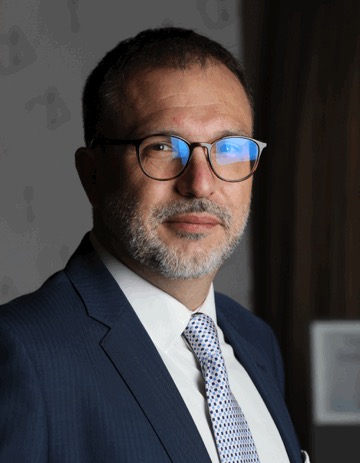Studying at the University of Verona
Here you can find information on the organisational aspects of the Programme, lecture timetables, learning activities and useful contact details for your time at the University, from enrolment to graduation.
Academic calendar
The academic calendar shows the deadlines and scheduled events that are relevant to students, teaching and technical-administrative staff of the University. Public holidays and University closures are also indicated. The academic year normally begins on 1 October each year and ends on 30 September of the following year.
Course calendar
The Academic Calendar sets out the degree programme lecture and exam timetables, as well as the relevant university closure dates..
| Period | From | To |
|---|---|---|
| 1° periodo lezioni - GEM | Oct 1, 2021 | Dec 22, 2021 |
| 2° periodo lezioni - GEM (febbraio/aprile) | Feb 9, 2022 | Apr 14, 2022 |
| 2° periodo lezioni - GEM (aprile/maggio) | Apr 20, 2022 | May 14, 2022 |
| Session | From | To |
|---|---|---|
| Sessione invernale - GEM - 2 appelli | Jan 8, 2022 | Feb 8, 2022 |
| Sessione estiva - GEM - 2 appelli | May 16, 2022 | Jul 23, 2022 |
| Sessione autunnale - GEM - 2 appelli | Aug 25, 2022 | Sep 24, 2022 |
| Session | From | To |
|---|---|---|
| Sessione autunnale - GEM - ottobre 2021 | Oct 25, 2021 | Oct 25, 2021 |
| Sessione invernale - GEM - aprile 2022 | Apr 21, 2022 | Apr 21, 2022 |
| Sessione estiva - GEM - luglio 2022 | Jul 1, 2022 | Jul 1, 2022 |
| Period | From | To |
|---|---|---|
| Festa di Tutti i Santi | Nov 1, 2021 | Nov 1, 2021 |
| Festa dell'Immacolata Concezione | Dec 8, 2021 | Dec 8, 2021 |
| Vacanze di Natale | Dec 24, 2021 | Jan 6, 2022 |
| Vacanze Pasquali | Apr 15, 2022 | Apr 19, 2022 |
| Festa della Liberazione | Apr 25, 2022 | Apr 25, 2022 |
| FESTA DEL LAVORO | May 1, 2022 | May 1, 2022 |
| Santo Patrono | May 21, 2022 | May 21, 2022 |
| Festa della Repubblica | Jun 2, 2022 | Jun 2, 2022 |
Exam calendar
Exam dates and rounds are managed by the relevant Law Teaching and Student Services Unit.
To view all the exam sessions available, please use the Exam dashboard on ESSE3.
If you forgot your login details or have problems logging in, please contact the relevant IT HelpDesk, or check the login details recovery web page.
Should you have any doubts or questions, please check the Enrollment FAQs
Academic staff
 eleonora.branca@univr.it
eleonora.branca@univr.it
 roberto.flor@univr.it
roberto.flor@univr.it
 gianluigi.lucietto@univr.it
gianluigi.lucietto@univr.it
 enrico.mariani@univr.it
enrico.mariani@univr.it
 stefania.pontrandolfo@univr.it
stefania.pontrandolfo@univr.it
Study Plan
The Study Plan includes all modules, teaching and learning activities that each student will need to undertake during their time at the University.
Please select your Study Plan based on your enrollment year.
1° Year
| Modules | Credits | TAF | SSD |
|---|
2° Year activated in the A.Y. 2022/2023
| Modules | Credits | TAF | SSD |
|---|
| Modules | Credits | TAF | SSD |
|---|
| Modules | Credits | TAF | SSD |
|---|
| Modules | Credits | TAF | SSD |
|---|
Legend | Type of training activity (TTA)
TAF (Type of Educational Activity) All courses and activities are classified into different types of educational activities, indicated by a letter.
Citizenship Rights (2022/2023)
Teaching code
4S009838
Teacher
Coordinator
Credits
6
Language
Italian
Scientific Disciplinary Sector (SSD)
IUS/01 - PRIVATE LAW
Period
1° periodo lezioni - GEM dal Oct 3, 2022 al Dec 23, 2022.
Learning objectives
This course intends to analyse citizenship rights, in civil operations in the constitutional and civil code framework, including special legislation and prospect for forms. Students will have the opportunity to analyze one of the specific non-profit area of intervention, in the field of family protection and childcare. This course generally intends to introduce the students in these juridical problems, which they can address in their professional activity: knowledge of administrative jurisdiction, social services administration and public intervention focused on minors’ protection, immigration and health, education and housing needs. This course, in other words, will give students instruments to see how they could insure family and child protection in emergency operations, caused by immigration uncontrolled because of humanities reasons, wars or climatic events. This way, students will be able to understand the juridical context of non-profit and institutions operations, their guidelines and limits in order to manager of the principal types of risks
Prerequisites and basic notions
No prerequisites required
Program
The course is designed to study the rights of citizenship from a distinctly civil law perspective, looking at the articulated regulatory fabric of immigration law, in its jurisprudence and administrative practices, offering future practitioners (legal and non-legal) possible solutions and critical issues, trying to trace them back to the best doctrine and in the light of the constitutional framework, the codified discipline and the special discipline, with an eye to recent instances of reform.
Students will then be introduced to the study of the fundamental categories of subjectivity (natural persons and legal subjectivity; legal capacity, capacity to act, natural capacity and discernment; existential situations) and, from here, to the discipline of citizenship and statelessness, up to the issues concerning the condition of the foreigner in private law relationships (art. 16 disp. prel. c.c., tort, purchases inter vivos and mortis causa).
Some typical issues in this field will then be proposed: the right to health care and social services for foreigners, registry obligations and residence rights.
Then, the topic of migrant families, the right to family unity and the protection of family members to reunification will be addressed, as well as that of minors in immigration law ("accompanied", unaccompanied and applicants for international protection).
Finally, the skills related to the jurisdiction and administration of social services and to the area of public intervention for the protection of minors will be provided. The training objective of the course is to provide students with specialist skills in one of the crucial areas of Emergencies: that of migration and the movement of families and minors, occasioned by emergency events or humanitarian reasons. At the end of the course, students will be able to understand the organisational and functional context of the bodies and institutions operating in the emergency sectors of family and child law and to manage the main legal issues.
***
Topics
1) Persons, capacities, personal situations, citizenship and statelessness
- Natural persons: evolution of the concept and 'other' subjectivities; legal capacity and capacity to act; natural capacity and capacity for discernment.
- Existential situations and their protection.
2) The foreigner, citizenship and consequent rights
- Citizenship: origin and evolution of the Italian discipline up to the most recent reforms; acquisition, loss and revocation of citizenship; jurisdiction and procedures.
- Statelessness: from international conventions to the domestic framework
- The right to health care.
- Social services for foreigners.
- Registry obligations and residence rights.
3) Family law and foreign and migrant minors
- Migrant families and the right to family unity
- Family reunification.
- Minors in immigration law ("accompanied", unaccompanied and applicants for international protection).
4) Administration of social services and family and children's jurisdiction
- The competent judicial authorities: the ordinary civil and criminal courts; the tutelary judge; the juvenile court; the public prosecutor's offices.
- Civil proceedings in family and children matters. Guardian, curator, technical defence of the child.
- Basic and specialised social services in the judicial context; the role of the private social sector.
- Public intervention for the protection of minors (measures of limitation and forfeiture of parental responsibility, ordinary and emergency judicial protection; enforcement of measures; temporary foster care and adoptions; emergency administrative protection; emergency removals and social service foster care).
Bibliography
Didactic methods
The lectures, necessary for the study of the more complex profiles of the subject of the course, will be accompanied by classroom exercises with self-assessment to verify the application of the regulatory tools studied, with the support of specific readings and jurisprudential rulings, which will be progressively provided to students through the dedicated e-learning platform.
During the academic year, students will be able to take advantage of the weekly reception service, on the day and at the time indicated on the teacher's web page, to clarify any doubts or deepen profiles of particular interest.
***
The lectures, in compliance with the University guidelines, will be delivered in presence. Lecture recordings will be available, upon request, for student workers (panopto for workers) and for situations of fragility, assessed on a case-by-case basis.
Learning assessment procedures
The assessment of the preparation will take place through an oral interview, on the contents of the indicated exam program and on the in-depth analyzes covered by the lessons.
Evaluation criteria
The evaluation will take place through the following criteria:
- the depth and breadth of the knowledge acquired;
- the property of language;
- analytical and argumentative ability;
- the capacity for critical reflection.
Criteria for the composition of the final grade
30/30
Exam language
Italiano
Type D and Type F activities
Le attività che consentono l’acquisizione dei crediti riservati alle attività formative a libera scelta dello studente (TAF D) sono le seguenti:
• Un insegnamento attivato nei Corsi di studi afferenti al Dipartimento di Scienze Giuridiche;
• Un laboratorio didattico attivato nei Corsi di studi afferenti al Dipartimento di Scienze Giuridiche;
• Un insegnamento previsto dall’Offerta Formativa di Ateneo, non impartito nell’ambito dei corsi di studi afferenti al Dipartimento di Scienze Giuridiche: il riconoscimento dei crediti acquisiti sarà subordinato alla preventiva presentazione di coerenti programmi formativi valutati e approvati dal Collegio didattico.
• Attività formative organizzate dai singoli docenti del Collegio didattico o del Dipartimento di Scienze Giuridiche: previa approvazione del Collegio;
• Attività formative che implicano la partecipazione a convegni o seminari organizzati sotto il “logo” del Dipartimento di Scienze Giuridiche o dell’Ateneo: devono essere preventivamente approvate dal Collegio didattico indicando un docente di riferimento del Collegio didattico ovvero del Dipartimento di Scienze Giuridiche.
• Attività formative che implicano la partecipazione a convegni o seminari organizzati prive del “logo” del Dipartimento di Scienze Giuridiche o dell’Ateneo: devono essere approvate dal Collegio didattico indicando un docente di riferimento del Collegio didattico ovvero del Dipartimento di Scienze Giuridiche.
Le attività che consentono l’acquisizione dei crediti riservati alle ulteriori attività formative (TAF F) sono le seguenti:
• Ulteriori competenze linguistiche (6 cfu)
• Stage o Project Work (6 cfu)
Al link https://www.univr.it/it/i-nostri-servizi/segreterie-studenti/giurisprudenza#categdoc_7103 la modulistica per l'inserimento di attività non selezionabili in autonomia dallo studente in sede di compilazione del piano degli studi
| years | Modules | TAF | Teacher |
|---|---|---|---|
| 1° 2° | Paradigm Shifts Beyond COVID-19: Individual v. Society and Private v. Public? | D | Not yet assigned |
| years | Modules | TAF | Teacher |
|---|---|---|---|
| 1° 2° | H2o: (in)finite resource? | D |
Matteo Nicolini
(Coordinator)
|
| 1° 2° | THE COMMUNICATION THROUGHOUT EMERGENCY | D | Not yet assigned |
| years | Modules | TAF | Teacher |
|---|---|---|---|
| 1° 2° | Paradigm Shifts Beyond COVID-19: Individual v. Society and Private v. Public? | D | Not yet assigned |
| years | Modules | TAF | Teacher |
|---|---|---|---|
| 1° 2° | (1 CFU) WORKSHOPS AT “ARENDT” STUDIES CENTRE – 2021 | D |
Olivia Guaraldo
(Coordinator)
|
| 1° 2° | (2 CFU) WORKSHOPS AT “ARENDT” STUDIES CENTRE – 2021 | D |
Olivia Guaraldo
(Coordinator)
|
| 1° 2° | (3 CFU) WORKSHOPS AT “ARENDT” STUDIES CENTRE - 2021 | D |
Olivia Guaraldo
(Coordinator)
|
| 1° 2° | EXPEDITIONARY LOGISTIC IN THE AIR FORCE | D |
Giovanna Ligugnana
(Coordinator)
|
| years | Modules | TAF | Teacher |
|---|---|---|---|
| 1° 2° | (1 CFU) WORKSHOPS AT “ARENDT” STUDIES CENTRE – 2021 | D |
Olivia Guaraldo
(Coordinator)
|
| 1° 2° | (2 CFU) WORKSHOPS AT “ARENDT” STUDIES CENTRE – 2021 | D |
Olivia Guaraldo
(Coordinator)
|
| 1° 2° | (3 CFU) WORKSHOPS AT “ARENDT” STUDIES CENTRE - 2021 | D |
Olivia Guaraldo
(Coordinator)
|
| 1° 2° | Emergency management and airports | D |
Matteo Nicolini
(Coordinator)
|
| 1° 2° | Doing green business: individuals and sustainable communities | D |
Matteo Nicolini
(Coordinator)
|
| 1° 2° | European civil protections mechanism: Resceu – Theory and practice | D |
Matteo Nicolini
(Coordinator)
|
| years | Modules | TAF | Teacher |
|---|---|---|---|
| 1° 2° | Civil protections: the role of local councils | D |
Matteo Nicolini
(Coordinator)
|
Career prospects
Module/Programme news
News for students
There you will find information, resources and services useful during your time at the University (Student’s exam record, your study plan on ESSE3, Distance Learning courses, university email account, office forms, administrative procedures, etc.). You can log into MyUnivr with your GIA login details: only in this way will you be able to receive notification of all the notices from your teachers and your secretariat via email and soon also via the Univr app.
Student mentoring
Internships
Internships are aimed at enabling students to gain direct knowledge of the world of work and to acquire specific professional skills.
Internships are carried out under the responsibility of an individual lecturer, and can be carried out in professional firms, public administration bodies and companies recognised by the University of Verona.
Any CFU credits gained by doing internships will be recognised and recorded by the University in accordance with the relevant University regulations in force (Regolamento d’Ateneo per il riconoscimento dei crediti maturati negli stage universitari).
For further information on internships, please go to: https://www.univr.it/it/i-nostri-servizi/stage-e-tirocini.
Language skills
Graduation
List of theses and work experience proposals
| theses proposals | Research area |
|---|---|
| Analisi e riorganizzazione delle strutture comunitarie | Various topics |
| La social network analysis applicata allo studio dei contesti colpiti da eventi catastrofici | Various topics |
| L'intervento sociale in situazioni d'emergenza | Various topics |
| Politiche d'intervento in condizioni d'emergenza | Various topics |
| Terzo settore e gestione delle situazioni d'emergenza | Various topics |


 045 8028548
045 8028548

















